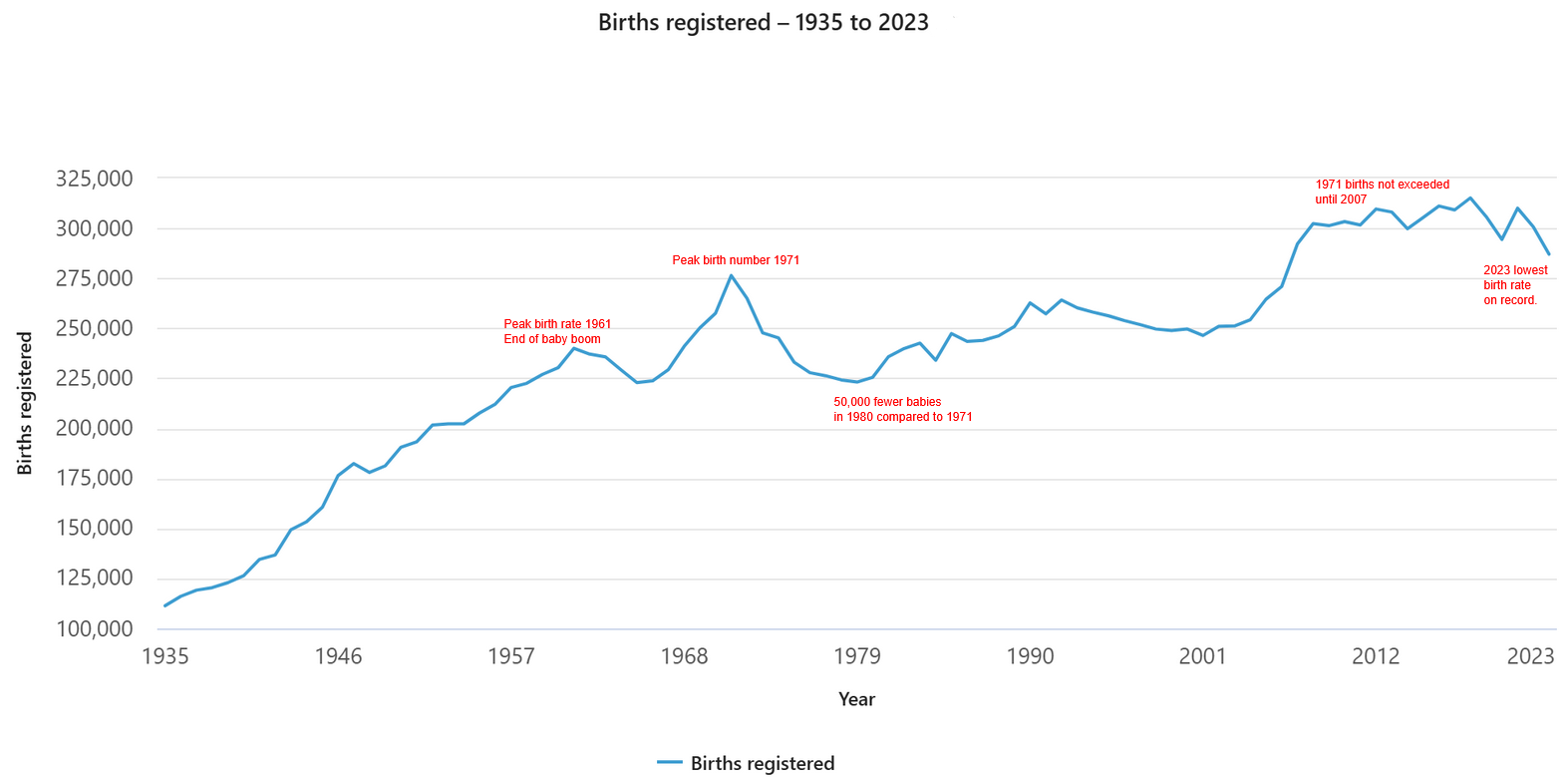In a previous article I looked at the baby boomers, those born in the post-war baby boom, and discovered that it actually started well before the end of World War II. This article looks at the generations which came after them, commonly known as generation X and generation Y, and asks “Have we gone too far in assigning letters to generations?”

Who are the X Generation?
Those born immediately after the baby boomers are usually known in this country as Generation X. There is little agreement on where this group starts and finishes. Generations really only have a clear definition within a family. In society, there are people born every year, and cultural norms gradually shift rather than having an abrupt break. Someone born in 1965 would share more of the experiences of the baby boomers than they would with someone born in 1978 though they would both be regarded as Generation X. The most common definition of Generation X is from about 1964 to 1978, but sometimes the definition extends a year or two before or after that.
The term “X” was coined to refer to the unknown nature of the generation, and the fact that they were the “baby busters” who wouldn’t necessarily fit the cultural norms established by the baby boomers before them. Note that for the most part, Generation X are NOT the children of the baby boomers, but the children of those born in between the wars, and during the Great Depression. Generation X were born at a time of declining birth rates, while the boomers were born at a time of increasing rates. The shared experiences of Generation X were those of children and teenagers in the 1980s.
Who are the Y Generation?
In contrast, Generation Y, which really was just coined as the term for those following Generation X, has little demographic basis at all. Generation Y are the most fluid of the lot in terms of definitions, usually said to start around 1979 and finish maybe mid-1990s. In this time frame the birth rate didn’t do much, but just stayed at a fairly low level. This was surprising, because Generation Y were predominantly the children of the baby boomers (a few of the early boomers would have had children in Gen X, these definitions are NOT precise, and people can have children at a wide range of ages). Before they were called Y they were going to be called the Echo Boomers, as the birth rate was expected to increase as those born in the 1950s and 60s had their own children in the late 70s and 80s. It never happened because women kept having children later and later in life, and having less of them than their parents. It wasn’t until the early 2000s that the birth rate started to uptrend again. See my baby bonus post about this..
More than any other generation, a lot of stereotypes seem to be applied to Generation Y. Apparently they can’t stay in a job very long, have no respect for their parents, prefer to travel than work, won’t settle down etc. I find it interesting that a lot of the labels applied to this generation are remarkably similar to those which have been applied to “young people” by older generations over thousands of years. The Greek philosopher Socrates is quoted as saying
“Children today are tyrants. They contradict their parents, gobble their food, and tyrannize their teachers.”
Perhaps this was the ancient Greek version of Generation Y or Z. In any case I don’t think there is much new about this.
Who comes next?
Due to the rather poor decision to start assigning letters to generations starting with the 3rd last letter of the alphabet, we don’t have much room to move. Presumably the next generation who are young children now would be Generation Z, and what’s next? Do we start with A again?
In any case, people are incredibly diverse and trying to apply these uniform stereotypes to an entire generation is doomed to failure. It’s bad enough that Astrology tries to pretend that there are only 12 types of people in the world and everyone born in the same month has the same personality. Do we really think that everyone born over a 20 year period has the same characteristics? At best these generations give you only a very broad indications of some cultural norms that applied over a generation’s formative years. It’s not really a good predictor of what impact a generation will have in the future, unless it’s based on hard demographic facts, as the baby boomers are to some extent.
So, since we’re about to run out of letters, I suggest we stop trying to pigeonhole arbitrary generations and talk instead about some demographic characteristics that we actually have evidence for.
If you would like to receive more updates about demographic or economic trends, do follow us on twitter @dotid or subscribe to our blog (above). You may also like to visit us at id.com.au










